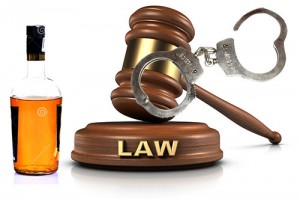A Criminal Defense Attorney (also referred to as a criminal defense lawyer), is a lawyer who specializes in the defense of companies and individuals charged in the court of law with criminal activities. Some criminal defense attorneys are privately retained while others are hired by different jurisdictions with the criminal court for appointments to represent indigent persons: the latter are normally called public defenders.
The term is imprecise since each jurisdiction might have different legal  practices with different levels of input from federal and state law or consent decrees. However, some jurisdictions employ a rotating method of appointments with magistrates and judges appointing a firm or a private practice lawyer for each case.
practices with different levels of input from federal and state law or consent decrees. However, some jurisdictions employ a rotating method of appointments with magistrates and judges appointing a firm or a private practice lawyer for each case.
In the US, criminal defense attorneys deal with matters surrounding a criminal investigation, an arrest, criminal charges, appeals, sentencing and post-trial issues. The criminal defense attorney also deal with substantive problems of the crime with which his/her clients are charged. They may also assist clients before any charge has been filed in the court by a prosecutor. This is done once someone believes he/she is being investigated or arrested.
 The accused may appoint a criminal defense attorney to assist with counsel & representation dealing with investigators or police, perform his/her own investigation, & at times present exculpatory-evidence that negates any potential charges by the prosecuting attorney. Criminal defense attorneys who are hired by government entities for example counties, the federal government, and the state governments are often known as court-appointed attorneys or public defenders.
The accused may appoint a criminal defense attorney to assist with counsel & representation dealing with investigators or police, perform his/her own investigation, & at times present exculpatory-evidence that negates any potential charges by the prosecuting attorney. Criminal defense attorneys who are hired by government entities for example counties, the federal government, and the state governments are often known as court-appointed attorneys or public defenders.
A criminal defense lawyer often spends a lot of time reading and reviewing all material documentation to determine if the charges or case can be won-on-constitutional grounds due to illegal conduct by the government. If there happen to be no constitution infringements, much of the attorney’s work then turns to trial-preparation. Any proposed agreement on matters settlement must be well compared in respect to the best judgment about the result after trial. The attorney will discuss any potential plea negotiations with the prosecutor, as an alternative to-exercising-the defendant’s trial rights & other rights.
Plea agreements, when proposed and made, can be described as either  sentencing agreements-(involving a lesser sentence), charge agreements (often involving a less-serious charge), or both.
sentencing agreements-(involving a lesser sentence), charge agreements (often involving a less-serious charge), or both.
Last but not least the procedure of becoming (criminal defense attorney) is similar to-any-other legal practice field. To become a qualified criminal defense attorney, a person will have to complete their first or undergraduate degree & graduate from a recognized law school. Then after graduating from law school & passing the bar examination, the new, qualified lawyer can start practicing criminal law. Nonetheless, nearly all reputable and well-known criminal defense lawyers spend some time after-being-admitted to chamber working under the tutelage of an experienced lawyer, often in a public defenders or prosecutors office.
